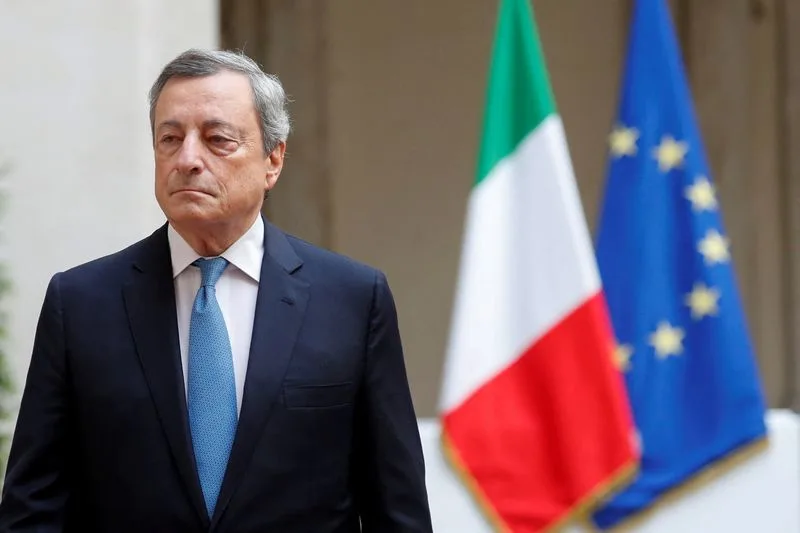By Philip Blenkinsop
BRUSSELS (Reuters) – The European Union requires significantly more coordinated industrial policies, swifter decision-making processes, and substantial investments to stay economically competitive with the United States and China, Mario Draghi highlighted in a highly anticipated report released on Monday.
The European Commission had tasked the former European Central Bank President and Italian Prime Minister a year ago to draft a strategy on maintaining the EU’s competitive edge in an increasingly digital and environmentally sustainable global economy amid rising international tensions.
In the initial segment of the report, which spans approximately 400 pages, Draghi emphasized that the EU needs additional annual investments ranging between 750-800 billion euros ($829-884 billion), equating to up to 5% of GDP. This figure far exceeds the 1-2% investment of the Marshall Plan, which was instrumental in rebuilding Europe post-World War Two.
While EU member states have already begun adapting to these new global challenges, Draghi’s report notes that their efforts are hampered by a lack of coordination.
Variations in subsidy levels between countries were disrupting the single market, while fragmentation hindered the scale necessary for global competition. Additionally, the EU’s decision-making process remained complex and slow.
“The EU must refocus its efforts on the most urgent issues, ensure efficient policy coordination towards common goals, and utilize existing governance procedures in innovative ways that allow member states desiring faster progress to do so,” stated the report.
For the past two decades, EU growth has consistently lagged behind that of the United States, with China rapidly closing the gap. Much of this disparity is attributed to lower productivity.
Draghi’s report emerges amidst growing concerns over Germany’s economic model, historically the EU’s engine, as Volkswagen considers its first-ever plant closures.
Draghi highlighted that the EU is grappling with higher energy prices following the loss of access to cheap Russian gas and can no longer depend on open foreign markets.
The former central banker emphasized the need for the bloc to enhance innovation and lower energy costs while maintaining its commitment to decarbonization. Additionally, he highlighted the importance of reducing dependencies on external sources, particularly China for critical minerals, and increasing investment in defense.
($1 = 0.9051 euros)
(Reporting by Philip Blenkinsop; Editing by Hugh Lawson)
